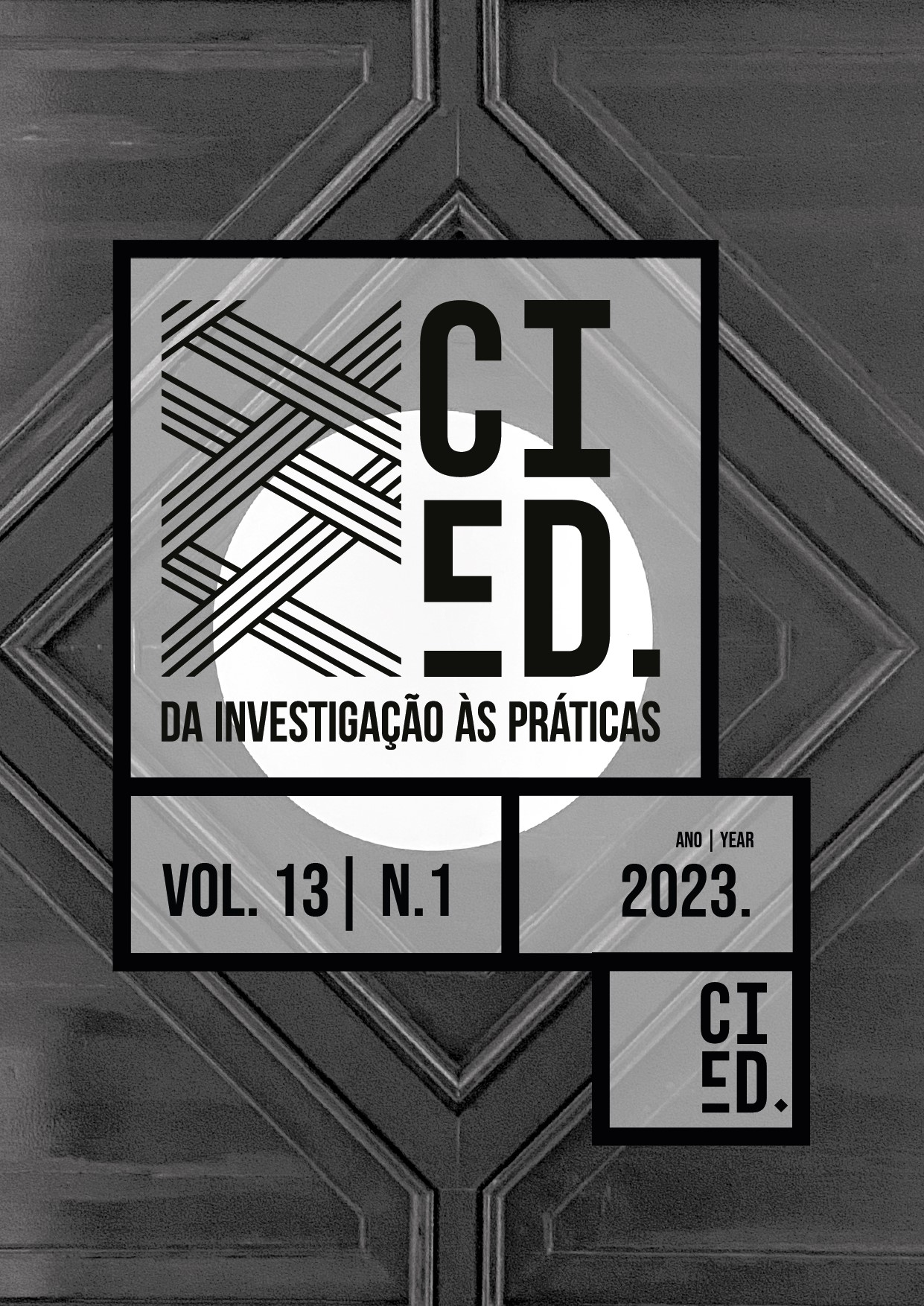Teaching typologies in the curriculum design of the Degree in Basic Education
DOI:
https://doi.org/10.25757/invep.v13i1.344Keywords:
Bachelor´s course in Basic Education, Initial teacher training, Bologna Process, Student-centered learning, Active learningAbstract
The present study sought to understand whether the curricula design of the Bachelor´s course in Basic Education (BE) reflect concerns about active learning. To this end, a comparative analysis was undergone of the study plans of 25 BE programs available regarding the type of instruction foreseen. The results reveal: i) a predominance of theoretical-practical hours in all courses; ii) a reduced or non-existent number of lecture hours in most courses; iii) a percentage of training and fieldwork hours of less than 10% of the total contact hours in all courses; iv) differentiated positions regarding the weight of the tutorial orientation; v) different understandings of what fieldwork and internship mean.
Downloads
References
Bremner, N. (2020). The multiple meanings of “student-centred” or “learner-centred” education, and the case for a more flexible approach to defining it. Comparative Education, 57(2), 159–186. https://doi.org/10.1080/03050068.2020.1805863
European Association for Quality Assurance in Higher Education. (2015). Standards and Guidelines for Quality Assurance in the European Higher Education Area (European Association of Institutions in Higher Education (ed.)). http://www.enqa.eu/index.php/home/esg/
European Higher Education Area (EHEA). (2005). Bergen Communiqué. http://www.ehea. info/media.ehea.info/file/2005_Bergen/52/0/2005_Bergen_Communique_english_580520.pdf
European Higher Education Area (EHEA). (2007). London Communiqué.
European Higher Education Area (EHEA). (2009). Leuven/Louvain-la-Neuve Communiqué. www.ehea.info/media.ehea.info/file/2009_Leuven_Louvain-la-Neuve/06/1/Leuven_Louvainla-Neuve_Communique_April_2009_595061.pdf
Franco, A. & Figueiredo, M. (2021). Há aprendizagem que não seja ativa?! Definições, irresoluções, algumas provocações e demais considerações sobre Aprendizagem Ativa no Ensino Superior. Interações, 58, 195-212. https://doi.org/10.25755/int.25214
Klemenčič, M. (2017). From Student Engagement to Student Agency: Conceptual Considerations of European Policies on Student-Centered Learning in Higher Education. Higher Education Policy 2017 30:1, 30(1), 69–85. https://doi.org/10.1057/S41307-016-0034-4
Lea, S. J., Stephenson, D., & Troy, J. (2003). Higher education students’ attitudes to student-centred learning: Beyond “educational bulimia”? Studies in Higher Education, 28(3). https://doi.org/10.1080/03075070309293
Leite, C., & Ramos, K. (2014). Políticas do Ensino Superior em Portugal na fase pós-Bolonha: implicações no desenvolvimento do currículo e das exigências ao exercício docente. Revista Lusófona de Educação, 28(28), 73–89.
Neumann, J. W. (2013). The Educational Forum Developing a New Framework for Conceptualizing “Student-Centered Learning.” The Educational Forum, 77(2), 161–175. https://doi.org/10.1080/00131725.2012.761313
O’Neill, G., & McMahon, T. (2005). Student-Centered Learning: What does it means for students and lectures? In G. O’Neill, S. Moore, & B. McMullin (Eds.), Emerging Issues in the Practice ofUniversity Learning and Teaching (pp. 27–36).
Starkey, L. (2019). Three dimensions of student-centred education: a framework for policy and practice. Critical Studies in Education, 60(3). https://doi.org/10.1080/17508487.2017.1281829
Decreto-Lei n.º 43/2007 do Ministério da Educação. (2007). Diário da República: I série, n.º 38. https://dre.pt/dre/detalhe/decreto-lei/43-2007-517819?_ts=1673395200034
Decreto-Lei n.º 79/2014 do Ministério da Educação e Ciência. (2014). Diário da República: I série, n.º 92. https://dre.pt/dre/detalhe/decreto-lei/79-2014-25344769
Downloads
Published
How to Cite
Issue
Section
License
Copyright (c) 2023 Mariana Feio, Bianor Valente, Teresa Leite

This work is licensed under a Creative Commons Attribution 4.0 International License.
Articles published or submitted to Da Investigação às Práticas are licensed according to Creative Commons Attribution License (CC BY 4.0). Authors agree that:
Copyrights of all articles published are retained by authors with first publication copyright granted to the journal.
All articles are under the Creative Commons Attribution License recognizing the authorship of the publication and identifying that first publication took place in this journal.
Authors have the right to free distribute or make available in private or institutional pages the version published by Da Investigação às Práticas: Estudos de Natureza Educacional provided the original proper citation.
The journal only accepts articles not published previously (except in the form of an abstract or as part of academic thesis), that it is not under consideration for publication elsewhere. After published, the article cannot be published again partial or totally without the editorial board consent.





 e-ISSN: 2182-1372
e-ISSN: 2182-1372